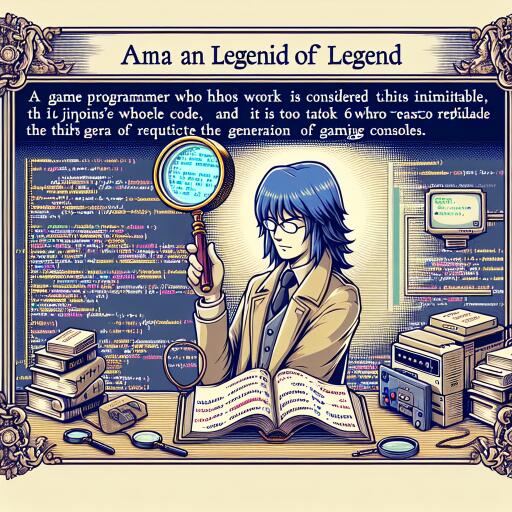Unraveling the Legend: Nasir Gebelli and the Enigmatic Code of Final Fantasy III
When it comes to the stories of game development legends, few are as captivating as that of Nasir Gebelli, an Iranian-born programmer whose contributions to the Final Fantasy series have become the stuff of gaming lore. It’s a tale that intertwines technical mastery with the elusive nature of programming genius, particularly surrounding the enigmatic 16-year hiatus before the reemergence of Final Fantasy III on a modern platform.
Gebelli’s journey from Iran to the United States is a narrative framed by the desire for education and the need to escape political upheaval. Settling into the world of computer science, his early forays into game development quickly established him as a pioneering figure among PC gaming circles of the late ’70s and early ’80s. Such was his prowess that Doom co-creator, John Romero, hailed him as a programming deity, illustrating the profound impact Gebelli had on his peers and the generations that followed.
In a collaboration that would etch his name in the annals of gaming history, Gebelli joined forces with Squaresoft (now Square Enix), where he became the driving force behind the programming of the initial trilogy of the Final Fantasy saga. While the first two chapters of this epic series enjoyed a multitude of remakes and ports, Final Fantasy III remained conspicuously absent from other platforms for over a decade, its complexities confined to the original Famicom release.
The tale of Final Fantasy III’s long absence took a fascinating turn with insights from a Japanese media outlet, MagMix, revealing that Gebelli’s unparalleled coding techniques, particularly his management of the game’s high-speed airship sequences, were considered near impossible to replicate. This peculiar facet of the game’s programming—a mastery of bug exploitation and real-time processing—left even the most skilled programmers of the era in awe. According to reports, they struggled to comprehend, much less recreate, the intricate dance of code that allowed for seamless map data loading, animations, and shadow effects within the strict timeframe of 1/60th of a second.
This programming sorcery wasn’t the sole reason for the delay, but it played its part. A port attempt for the WonderSwan Color handheld was axed, highlighting the challenges faced. Despite successful ports of its siblings and Final Fantasy IV to the same platform, Final Fantasy III’s dense content and the overwhelming prospect of updating its rich visuals and audio were daunting hurdles. Hiromichi Tanaka, a longstanding figure at Square, once commented on the sheer scale of content and the limitations of new platforms as significant barriers to the game’s re-release.
Without explicit confirmation, the extent to which Gebelli’s coding mastery influenced Final Fantasy III’s long journey to modern platforms remains partly speculative. However, the allure of this legend does not reside in its conclusiveness but rather in the celebration of a remarkable figure whose work continues to inspire awe and admiration within the gaming community. It is a reminder of the profound impact that singular talents can have on the worlds they help create and the lasting legacy they leave behind.
As Final Fantasy III eventually found its way onto the Nintendo DS in 2006 and received a Pixel Remaster in 2021, it’s clear that while technology advances and gaming evolves, the stories of the people behind these digital adventures remain timeless. Nasir Gebelli’s story, from escaping revolution to programming revolutionary games, is a testament to the enduring allure of creativity and innovation in the video game industry.









